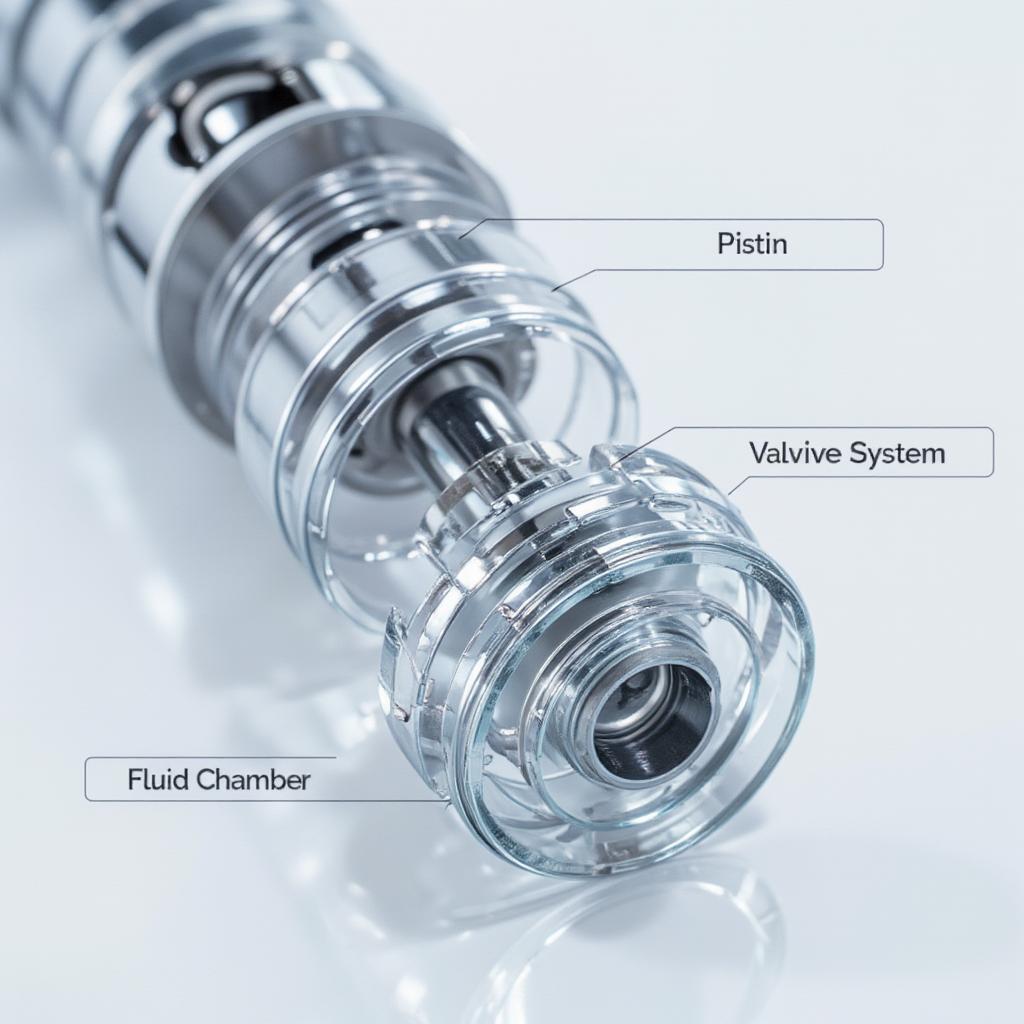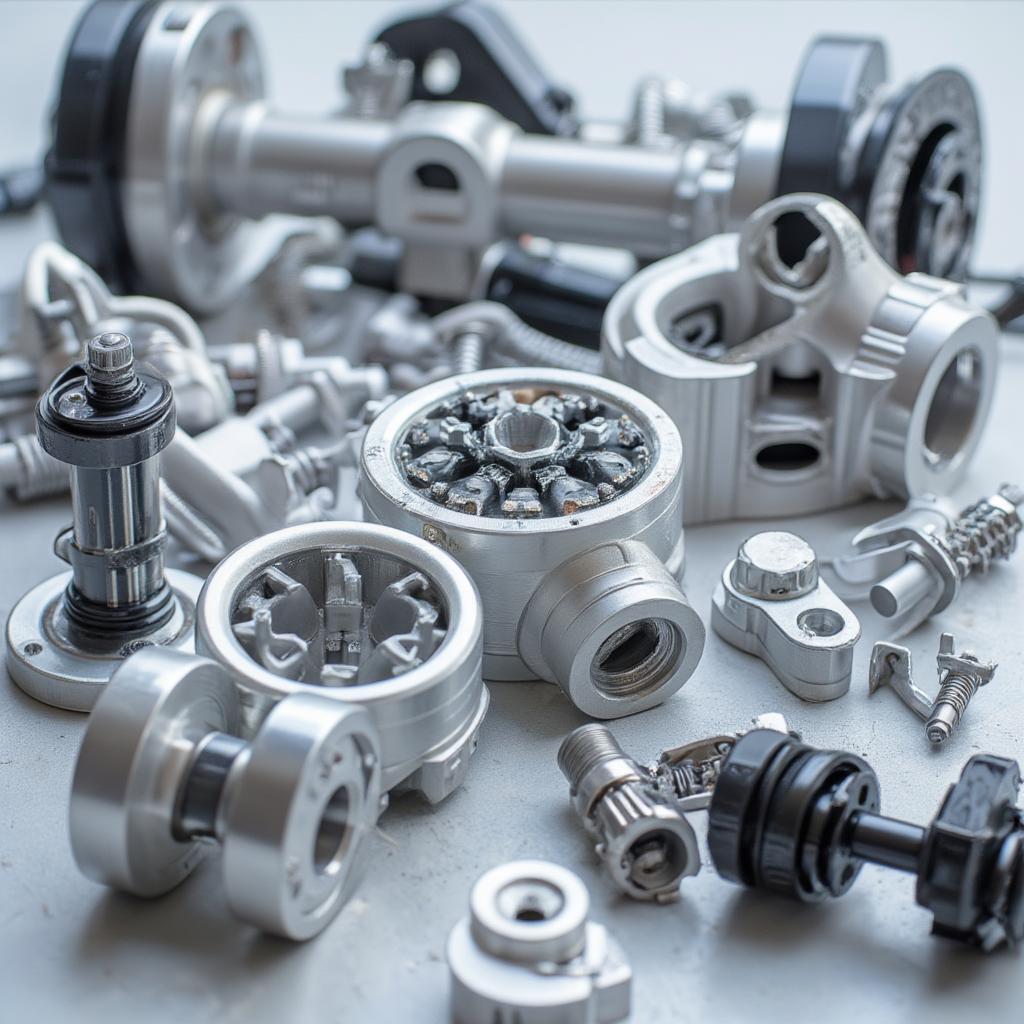Top Colleges for Automotive Engineering: Fueling Your Future in the Auto Industry

The automotive industry is undergoing a massive transformation, driven by advancements in electric vehicles, autonomous driving, and connected car technologies. This revolution demands skilled automotive engineers, making the choice of the right college crucial. Choosing the right program from the best Colleges For Automotive Engineering can set the stage for a successful career in this dynamic field.
Choosing the right college for automotive engineering is a crucial decision for aspiring engineers. A comprehensive program that combines theoretical knowledge with practical experience can significantly impact career prospects. Factors to consider include faculty expertise, research opportunities, industry connections, and specialized labs and facilities. Let’s delve into some of the top institutions renowned for their automotive engineering programs.
Leading Universities for Automotive Engineering
Several universities stand out for their comprehensive automotive engineering programs, offering students a strong foundation for a thriving career. These institutions provide a blend of theoretical knowledge, hands-on experience, and industry connections.
Michigan Technological University
Michigan Tech’s reputation in automotive engineering is built on its strong focus on hands-on learning. Students gain practical experience through labs equipped with state-of-the-art technology and opportunities to participate in student design competitions, such as Formula SAE and Baja SAE. Its location in the heart of the American automotive industry provides unique networking and internship opportunities.
Clemson University
Clemson University’s Department of Automotive Engineering offers a unique graduate program focused on systems integration. The program emphasizes the interconnectedness of various automotive systems and prepares students for leadership roles in the industry. Its close ties with major automotive manufacturers in South Carolina offer valuable industry exposure.
Purdue University
Purdue University’s School of Mechanical Engineering houses a robust automotive engineering program with a strong emphasis on research and development. The university’s research facilities, including the Ray W. Herrick Laboratories, provide students with opportunities to engage in cutting-edge research in areas like engine combustion and vehicle dynamics. Graduates from Purdue are highly sought after by leading automotive companies.
Key Considerations When Choosing a College
While university rankings provide a general overview, prospective students should consider several factors when selecting a college for automotive engineering.
Faculty Expertise and Research Opportunities
Investigate the faculty’s research areas and publications to ensure alignment with your interests. Look for opportunities to engage in undergraduate research projects, which can provide valuable hands-on experience and enhance your understanding of advanced concepts.
Industry Connections and Internships
Strong industry connections can lead to valuable internship opportunities, providing real-world experience and networking opportunities. Attend career fairs and connect with alumni working in the automotive industry to gain insights into potential career paths. If you’re keen on learning more practical skills alongside your studies, consider options like learning automotive mechanics.
Specialized Labs and Facilities
Access to state-of-the-art labs and facilities is crucial for hands-on learning in automotive engineering. Look for universities with specialized labs dedicated to areas like vehicle dynamics, powertrain development, and electric vehicle technologies. Programs focusing on practical application often lead to automotive engineering technology jobs.
Future Trends in Automotive Engineering Education
The automotive industry’s rapid evolution demands continuous adaptation in educational programs. Future trends in automotive engineering education will likely focus on:
Electrification and Autonomous Driving
Curriculums will increasingly incorporate electric vehicle technologies, battery management systems, and autonomous driving algorithms. Understanding these emerging technologies will be essential for future automotive engineers.
Data Analytics and Software Engineering
As vehicles become more connected and data-driven, the demand for engineers with expertise in data analytics and software engineering will grow. Colleges are likely to integrate these subjects into their automotive engineering programs. Even basic knowledge gained through resources like basic automotive maintenance classes can be beneficial.
Sustainability and Environmental Considerations
The automotive industry is increasingly focused on sustainability, and future engineers will need to understand the environmental impact of vehicle design and manufacturing. Courses on sustainable manufacturing practices and lifecycle analysis will likely become more prevalent.
“The future of automotive engineering lies in interdisciplinary collaboration. Students need a strong foundation in core engineering principles combined with specialized knowledge in areas like electrification, autonomous systems, and data analytics,” says Dr. Emily Carter, a leading automotive engineering professor at Stanford University.
“Hands-on experience is crucial for aspiring automotive engineers. Participating in student design competitions and internships provides invaluable practical skills and industry exposure,” adds Professor John Miller, Head of the Automotive Engineering Department at the University of Michigan. If a full-time program isn’t feasible, consider flexible options like an evening mechanics course or searching for automotive night classes near me.
Conclusion
Selecting the right college for automotive engineering is a pivotal step towards a fulfilling career in a rapidly evolving industry. By carefully considering factors like faculty expertise, research opportunities, industry connections, and future trends, aspiring engineers can position themselves for success in this exciting field. Thorough research and careful consideration of these colleges for automotive engineering will pave the way for a successful career in this dynamic industry.

FAQ:
- What is automotive engineering?
- What are the career options for automotive engineers?
- What skills are required for automotive engineers?
- What is the average salary for automotive engineers?
- What are the admission requirements for automotive engineering programs?
- How long does it take to get an automotive engineering degree?
- What are the different types of automotive engineering degrees?
- What are some of the challenges facing the automotive industry?
- What are the future trends in automotive engineering?




